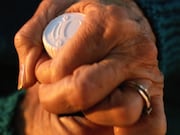Peer Comparisons Can Decrease Risky Prescribing Patterns

TUESDAY, Aug. 14, 2018 — Letters targeting high prescribers of quetiapine (Seroquel), an antipsychotic with potentially harmful side effects in the elderly, significantly reduces the number of prescriptions for patients in the Medicare program, according to a study published online Aug. 1 in JAMA Psychiatry.
Adam Sacarny, Ph.D., from Columbia University in New York City, and colleagues randomized (1:1) the 5,055 highest-volume primary care prescribers of quetiapine in 2013 and 2014, approximately 5 percent of all primary care prescribers of quetiapine, to receive a placebo letter or three peer comparison letters stating that their quetiapine prescribing was high relative to their peers.
The researchers found that the 5,055 prescribers consisted of general practitioners (4.6 percent), family medicine (48 percent), and internal medicine (47.4 percent). The vast majority (82.2 percent) were male. Over nine months, the treatment arm prescribed 11.1 percent fewer quetiapine days per prescriber versus the control arm (P < 0.001; adjusted difference, −319 days; P < 0.001), which persisted over two years (15.6 percent fewer days; P < 0.001). Patients in the treatment arm received 3.9 percent fewer days of quetiapine from all prescribers over nine months (P < 0.001), with a larger decrease among patients with low-value versus guideline-concordant indications (P = 0.01 for tests where effects were equal for both patient groups). There was no evidence of substitution to other antipsychotics, and nine-month mortality and hospital use were similar between the groups.
“Behavioral nudge interventions can raise the quality of prescribing, but research is still needed on how to most precisely target unsafe prescribing behavior,” the authors write.
Abstract/Full Text (subscription or payment may be required)
Editorial (subscription or payment may be required)
Posted: August 2018
Source: Read Full Article


